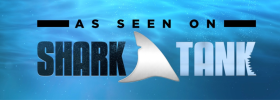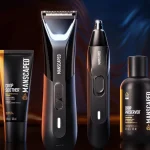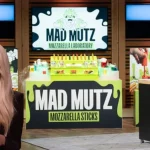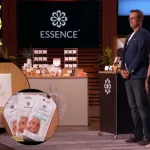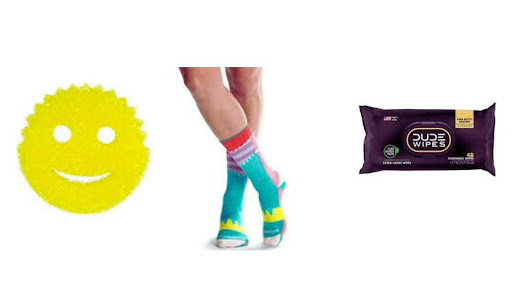
Highlights
- Shark Tank has been helping the dreams of countless entrepreneurs come alive.
- With funding from the biggest business names like Mark Cuban, Daymond John, and Lori Greiner, companies have earned a spot in the business arena.
- Read the blog below to find out the most successful companies on Shark Tank, which were quite small when they appeared on the show.
Until some years back, small businesses struggled to get success in a quick period. The main reasons for this were insufficient money and unreliable investors. With Shark Tank coming into being, these problems have taken a backseat.
The show presents businesses with a panel of experienced business professionals who assist small ventures through financial assistance. If required, they even share personal experiences and guide the entrepreneurs. These things together result in success stories.
Below is a detailed discussion on the influence of Shark Tank on small ventures that have appeared on the show:
1. Bombas
In 2014, Bombas was brought to the investors by David Heath and Randy Goldberg a year after its establishment. This socks making company donated one pair for every sold pair. After four panelists backed out, they sealed an offer from Daymond John at $200K for 17.5% equity.
During their pitch, the founders revealed that they had been funding their company through an Indiegogo campaign. With that, they had managed to raise more than $140K.
Bombas founders went to Shark Tank to find a decent presence in stores. Before the show, they were selling on the online platform only.
After securing a deal with Daymond, the company went ahead to reach new highs every day. This small-scale venture turned into a million-dollar empire within months of its appearance on the show.
The latest update is that its lifetime sales stand tall at $1.3 billion, which has made it the number one Shark Tank company to date. It employs 150 people across 15 facilities spread around 8 different nations.
Additionally, it stayed true to its promise of helping the homeless and donated more than 100 million items to shelters.
David and Randy offered their gratitude to Daymond in different interviews by stating how he helped them at different levels. Understanding their vision, he communicated with them as a friend and mentor. He even shared key inputs from his personal experiences to lead them toward success.
2. Scrub Daddy
Aaron Krause went to the judges with Scrub Daddy, a company selling unique smiley-shaped kitchen cleaning sponges. Pitched in 2012, it was presented in the same year in which it was founded. After intense negotiations, the final deal was locked with Lori Greiner for $200K at 20% equity.
When the company was pitched on Shark Tank, its sales had touched the mark of $100K. Aaron was then targeting the retail arena by planning to get his products on the shelves of about 3000 outlets. This is why, although he received offers from Kevin O’Leary and Daymond John, he chose Lori.
Pre-Shark Tank, its products were manufactured in Germany only. But now, its factories are spread in New Jersey and Tennessee. Its global reach further rose after a deal with Unilever. Scrub Daddy joined hands with JP Morgan in 2024 to achieve higher sales.
Furthermore, with over $900 million of lifetime sales, it is the second most successful Shark Tank company, behind only Bombas. With 273 employees and a presence in 257,000 retail outlets, it has evolved as a sensation. Plus, the company now sells over 160 products.
Lori’s retail dominance and proven experience in QVC helped Aaron achieve what he wanted more quickly and easily. Post the episode, Scrub Daddy reached thousands of retail stores, including Bed, Bath & Beyond. It even featured on QVC more than once and the sales rose to millions within years.
3. Dude Wipes
Brought to the Sharks by Sean Riley, Ryan Meegan, and Jeff Klimkowski, Dude Wipes was an alternative to the age-old toilet papers. These wipes, made specially for men, were presented to the judges three years after their establishment in 2012. The deal was finalized with Mark Cuban for $300K at 25% equity.
At the time of their Shark Tank episode, the company was available on Amazon. They did great in the offline world as well by finding a presence in King Soopers, Smith’s, and Kroger’s.
The entrepreneur trio had reached out to the panelists to seek help in the production and distribution aspects.
Dude Wipes soon found its name in the list of Shark Tank success stories. It made millions of sales in just a year after its telecast. Mark helped them promote their brand better by appearing in one of their marketing videos.
The production and distribution also increased immensely. Dude Wipes grabbed a deal with Walgreens and Target. With an increased demand for wipes in a locked environment, the pandemic period further amplified its growth rate.
By 2021, it emerged as the second-largest company to sell flushable wipes in the USA. As of 2023, its lifetime sales went over $340 million.
Mark’s involvement allowed the company to reap great benefits from his strategic business inputs. He advised them not to try their hands at different horizons and remain focused on the flagship item, i.e., wipes.
The advice turned out to be true when they lost a major proportion of their resources in their newly launched deodorant venture. So, they went ahead with Mark’s guidance, dropped the new venture, and earned huge with the wipes business.
To Conclude
Shark Tank has established itself as the most desirable platform for entrepreneurs to transform their small-scale ventures into million and even billion-dollar empires. Bombas, Scrub Daddy, and Dude Wipes are some names that strongly exemplify this fact.
These businesses are living examples of how Shark Tank, through necessary funding and assistance from brilliant investors, allows budding companies to position themselves in the highly competitive industry.
References
1. BOMBAS: Better Socks. Better World. Bee Better., Indiegogo
2. How The Billion-Dollar Sock Guys From ‘Shark Tank’ Learned To Say No, Forbes, Eric Ryan
3. Mark Cuban gave this start-up some valuable advice — here’s what happened when its leaders didn’t listen, CNBC, Brandon Gomez
4. Scrub Daddy, Wikipedia
5. Scrub Daddy Story: From Shark Tank to Household Staple, Scrub Daddy




